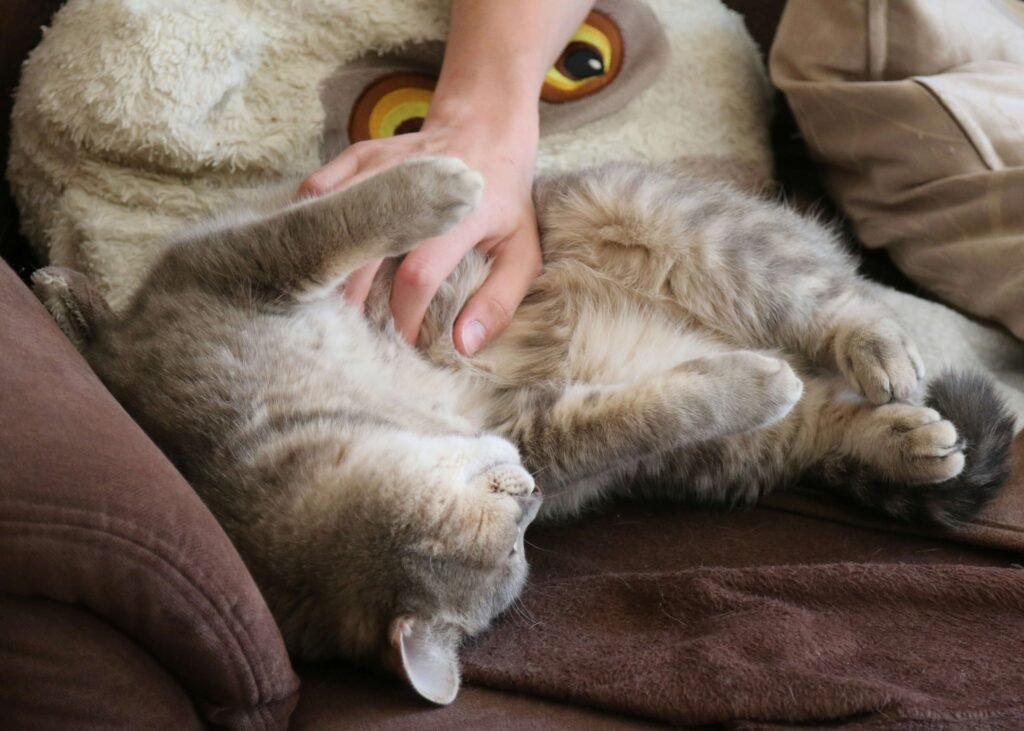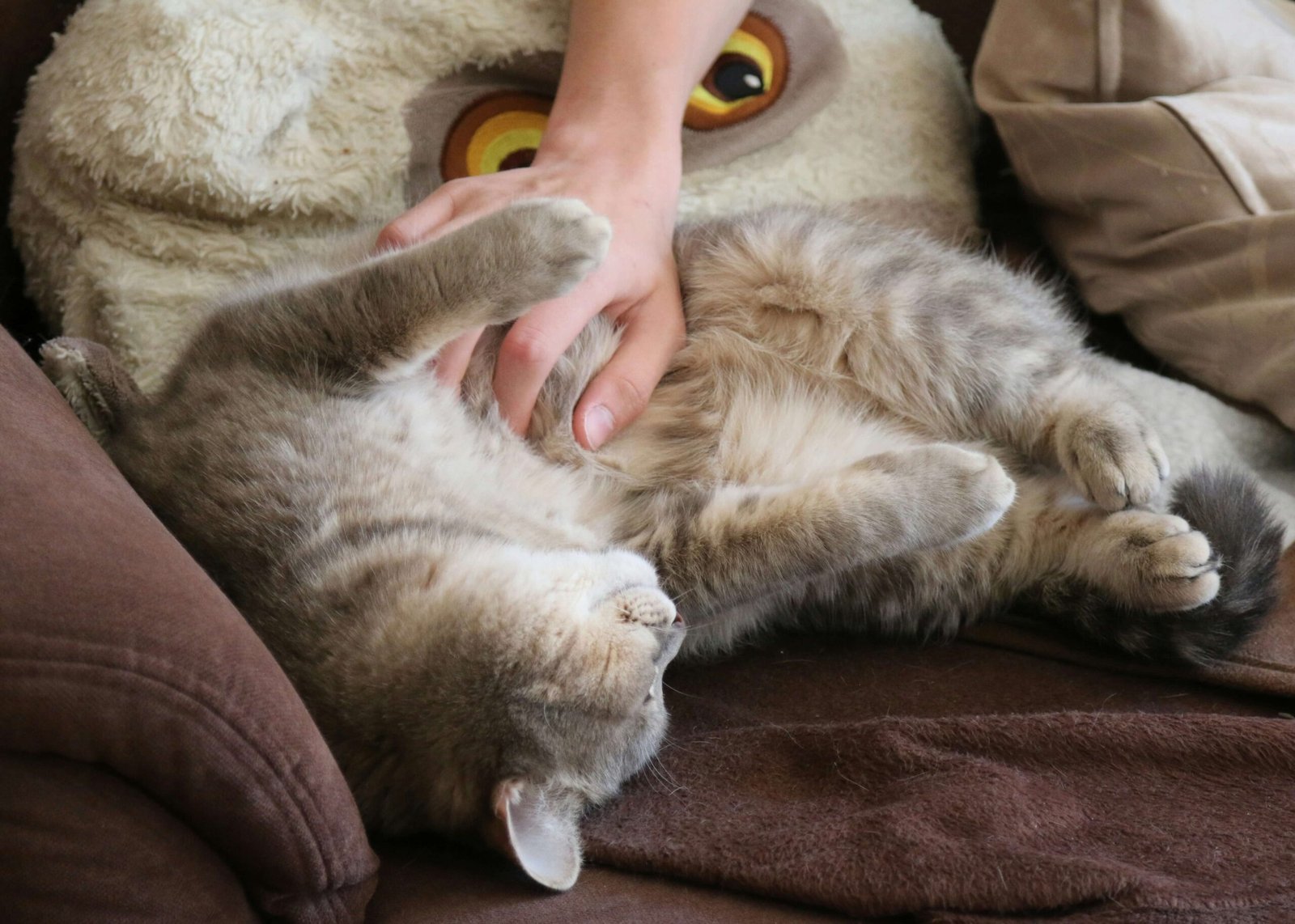Why Do Cats Rub Against You? Decoding This Endearing Feline Behavior
If you’ve ever wondered why your cat insists on rubbing against your legs, face, or even furniture, you’re not alone. This seemingly simple act is actually a deeply ingrained behavior rooted in feline instincts and communication. Cats are mysterious creatures, but their actions often reveal fascinating insights into their world. Rubbing isn’t just random—it’s a way for them to express affection, mark territory, and connect with you. In this blog post, we’ll explore the reasons behind this behavior, what it means for your bond with your cat, and how you can respond to make your furry friend feel even more loved.
The Science Behind Why Cats Rub Against You
Cats rub against objects and people as part of their natural behavior, and understanding the science behind it can help you appreciate this gesture even more. Here’s a closer look at the biological and social motivations driving this endearing habit.
Scent Marking Through Glands :
Cats have scent glands located on their cheeks, forehead, and the base of their tail, which release pheromones when they rub against something.Claiming Ownership :
By marking you with their scent, cats are essentially “claiming” you as part of their territory—a sign of trust and affection.Social Bonding :
Rubbing is a way for cats to strengthen their bond with humans and other animals in their environment.Comfort and Security :
The act of rubbing releases feel-good hormones like oxytocin in cats, making them feel safe and content.Seeking Attention or Food :
Sometimes, cats rub against you to communicate needs, such as hunger or a desire for interaction.
Understanding these motivations sheds light on why rubbing is so meaningful to cats and helps deepen your connection with them.
Different Types of Rubbing and What They Mean
Not all rubbing behaviors are the same—each has its own unique meaning depending on where and how your cat chooses to rub against you. Let’s break down the most common types and their interpretations.
Head Bunting (Forehead Rubs) :
When your cat presses their forehead against you, it’s a sign of deep trust and affection, often reserved for their favorite humans.Cheek Rubbing :
Cheek rubbing is another form of scent marking, indicating that your cat sees you as part of their social circle.Tail Wrapping :
A cat wrapping its tail around your leg or arm is similar to giving you a hug—it’s an affectionate gesture showing closeness.Leg Rubbing While Walking :
If your cat weaves between your legs while walking, they may be seeking attention, food, or simply enjoying your presence.Furniture or Object Rubbing :
Rubbing against objects like walls or furniture is primarily about territorial marking, ensuring their scent is present in their environment.
Paying attention to these subtle differences allows you to better interpret your cat’s intentions and respond appropriately.
Check this guide 👉Why Does My Cat Rub on My Shoes? Best 7 Expert Tips!
Check this guide 👉Why Is My Cat Flicking the End of Their Tail? Best 7 Tips!
Check this guide 👉Why Does My Cat Bite My Fingers? Best 7 Expert Tips!

Positive Aspects of Cat Rubbing | Potential Concerns to Watch For |
|---|---|
Strengthens human-cat bond | Excessive rubbing could indicate stress |
Shows trust and affection | Over-marking might signal territorial anxiety |
Helps cats feel secure | Sudden changes in behavior could point to illness |
Communicates comfort | Rubbing paired with aggression may indicate discomfort |
Natural instinctive behavior | Persistent rubbing on one spot could cause skin irritation |
How to Respond When Your Cat Rubs Against You
When your cat rubs against you, responding thoughtfully can enhance your bond and ensure they feel acknowledged. Here are some tips on how to react appropriately to this affectionate behavior.
Offer Gentle Petting :
Stroke your cat gently along their back or under their chin to reciprocate their affection.Avoid Overstimulation :
Be mindful of your cat’s body language—if they seem overstimulated, give them space to avoid overwhelming them.Use Positive Reinforcement :
Reward your cat with treats or praise to encourage positive interactions during rubbing sessions.Respect Their Boundaries :
If your cat seems disinterested or moves away, don’t force further interaction. Respect their need for independence.Engage in Playtime :
Use rubbing moments as an opportunity to initiate play, strengthening your bond through shared activities.
By responding thoughtfully, you can create a deeper sense of trust and companionship with your feline friend.
Misconceptions About Why Cats Rub Against You
There are several myths surrounding why cats rub against people, which can lead to misunderstandings about their behavior. Let’s debunk some common misconceptions to set the record straight.
They’re Just Being Affectionate All the Time :
While rubbing can indicate affection, it’s also about scent marking and communication—not always purely emotional.Rubbing Only Happens With Humans They Love :
Cats may rub against unfamiliar people too, especially if they’re curious or seeking attention.It’s Always a Sign of Happiness :
While true in many cases, excessive rubbing could sometimes indicate stress or anxiety.Cats Rub Because They Want Something Specific :
Not every rub is tied to food or play; sometimes it’s simply about bonding or marking territory.All Cats Rub Equally Often :
Frequency varies by personality—some cats are naturally more inclined to rub than others.
Clearing up these misconceptions helps foster a better understanding of your cat’s unique behavior patterns.
How to Encourage Positive Rubbing Behavior
If you want to encourage your cat’s rubbing behavior as a way to strengthen your bond, there are several strategies you can try. These tips will help create an environment where your cat feels comfortable expressing themselves through rubbing.
Provide Consistent Affection :
Spend quality time petting and interacting with your cat daily to reinforce their trust in you.Use Calming Scents :
Introduce pheromone diffusers or sprays to create a stress-free atmosphere that encourages natural behaviors like rubbing.Reward with Treats :
Offer small treats when your cat rubs against you to positively reinforce the behavior.Maintain a Routine :
Cats thrive on predictability, so stick to regular feeding, play, and cuddle times to build confidence.Create Safe Spaces :
Ensure your home has cozy spots where your cat feels secure enough to engage in rubbing without fear of disturbances.
By implementing these strategies, you’ll foster a stronger connection with your cat while promoting healthy interactions.
Signs That Rubbing May Indicate Stress
While rubbing is generally a positive behavior, it can sometimes signal underlying stress or anxiety in cats. Recognizing these signs can help you address potential issues early.
Excessive Rubbing on Objects :
If your cat suddenly starts rubbing excessively on walls, furniture, or other surfaces, it could indicate nervousness.Accompanying Hiding Behavior :
Rubbing paired with hiding may suggest your cat is feeling overwhelmed or unsafe.Changes in Frequency :
A significant increase or decrease in rubbing might point to emotional distress or discomfort.Vocalization During Rubbing :
If your cat meows loudly or seems agitated while rubbing, they might be seeking reassurance due to stress.Overgrooming Alongside Rubbing :
Excessive licking combined with frequent rubbing can be a sign of anxiety or skin irritation.
Being aware of these signs allows you to take proactive steps to support your cat’s mental well-being.
Fun Facts About Cat Rubbing Behavior
Cat rubbing is not only functional but also full of fascinating quirks that highlight their unique personalities. Here are some fun facts about this endearing behavior.
Cats Have Unique Scent Signatures :
Each cat’s scent is as individual as a fingerprint, making their marking efforts highly personal.Rubbing Can Be a Greeting Ritual :
In multi-cat households, rubbing is often part of a greeting ritual between feline companions.Scent Marking Helps Them Navigate :
By leaving scent trails, cats can navigate their environment more easily and recognize familiar paths.They Target Specific Areas for Marking :
Cats tend to focus on high-traffic areas or objects near entry points to maximize visibility of their scent.Even Outdoor Cats Use Rubbing :
Feral or outdoor cats use rubbing to communicate with other animals and establish territory boundaries.
These intriguing insights remind us just how complex and intelligent our feline friends truly are!
Frequently Asked Questions About Cats Rubbing Against You
Why does my cat rub against me when I come home?
Your cat is likely greeting you and reinforcing your bond by marking you with their scent after being apart.
Is it normal for my cat to rub against strangers?
Yes, some cats are curious and use rubbing as a way to investigate new people or invite interaction.
Should I stop my cat from rubbing against furniture?
It’s a natural behavior, so redirecting it to scratching posts or toys is better than trying to stop it entirely.
Can rubbing be a sign of illness?
Rarely, but sudden changes in rubbing frequency or intensity should prompt a vet visit to rule out health issues.
Does rubbing mean my cat trusts me?
Absolutely! Rubbing is one of the clearest signs that your cat feels safe and secure around you.
Final Thoughts: Embracing the Meaning Behind Rubbing
In conclusion, cats rubbing against you is far more than just a quirky habit—it’s a complex form of communication that reflects trust, affection, and their innate need to mark their surroundings. By understanding the motivations behind this behavior, you can strengthen your bond with your feline companion and provide them with the love and reassurance they crave. Remember, each cat is unique, so pay attention to their individual preferences and signals. Whether it’s a gentle head bunt or a playful weave around your legs, cherish these moments—they’re proof that your cat truly adores you.
Dog Tapeworm Life Cycle: Best 7 Expert Tips! – Learn how tapeworms infect dogs, spot symptoms, and break the cycle with expert prevention strategies.
Anxious Cat Body Language: Best 7 Expert Tips! – Learn to spot signs of stress, understand triggers, and help your cat feel safe and relaxed.
Anxious Dog Body Language: Best 7 Expert Tips! – Learn to spot signs of anxiety, respond effectively, and help your dog feel safe and secure.
Is Breeding Dogs Bad? Best 7 Expert Tips! – Explore the ethics, benefits, and risks of dog breeding to make informed decisions for a better future.





